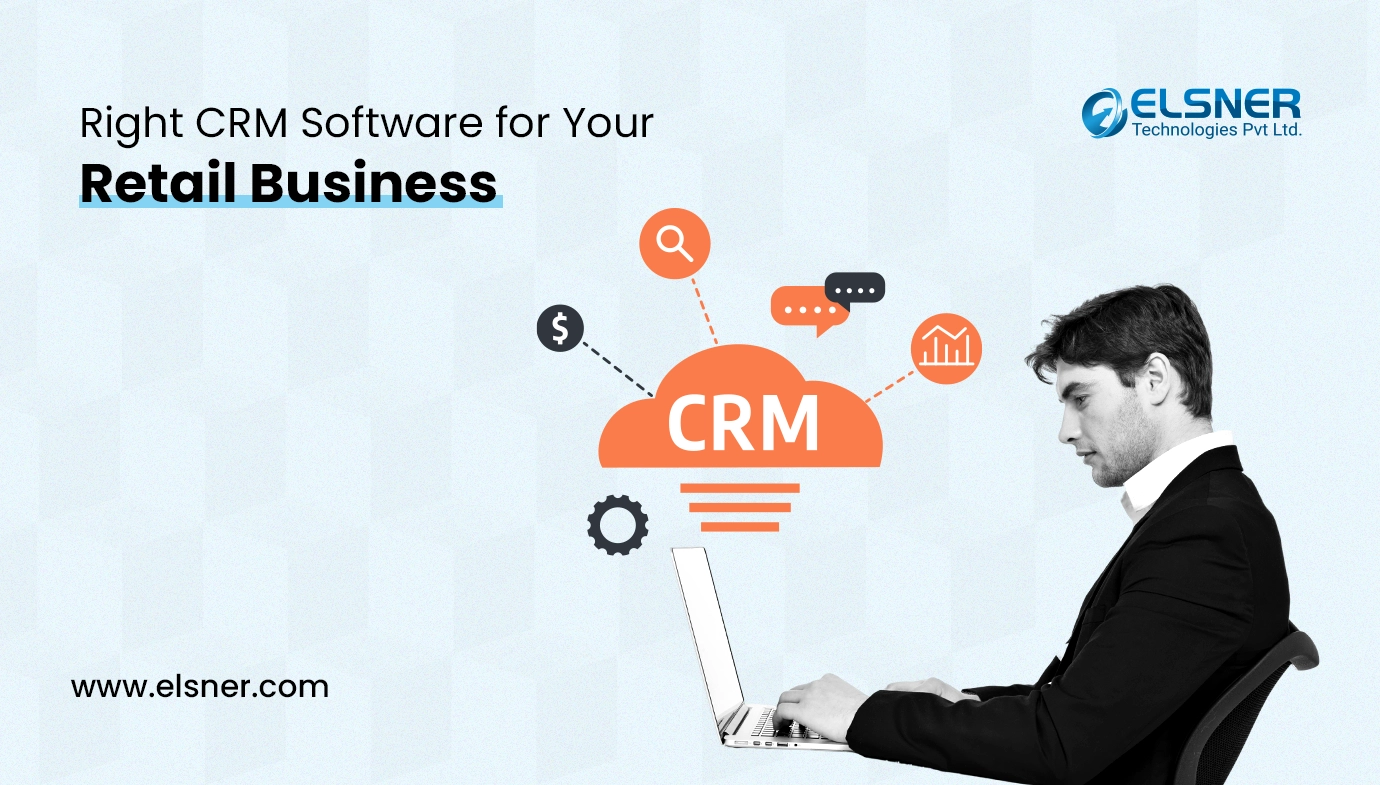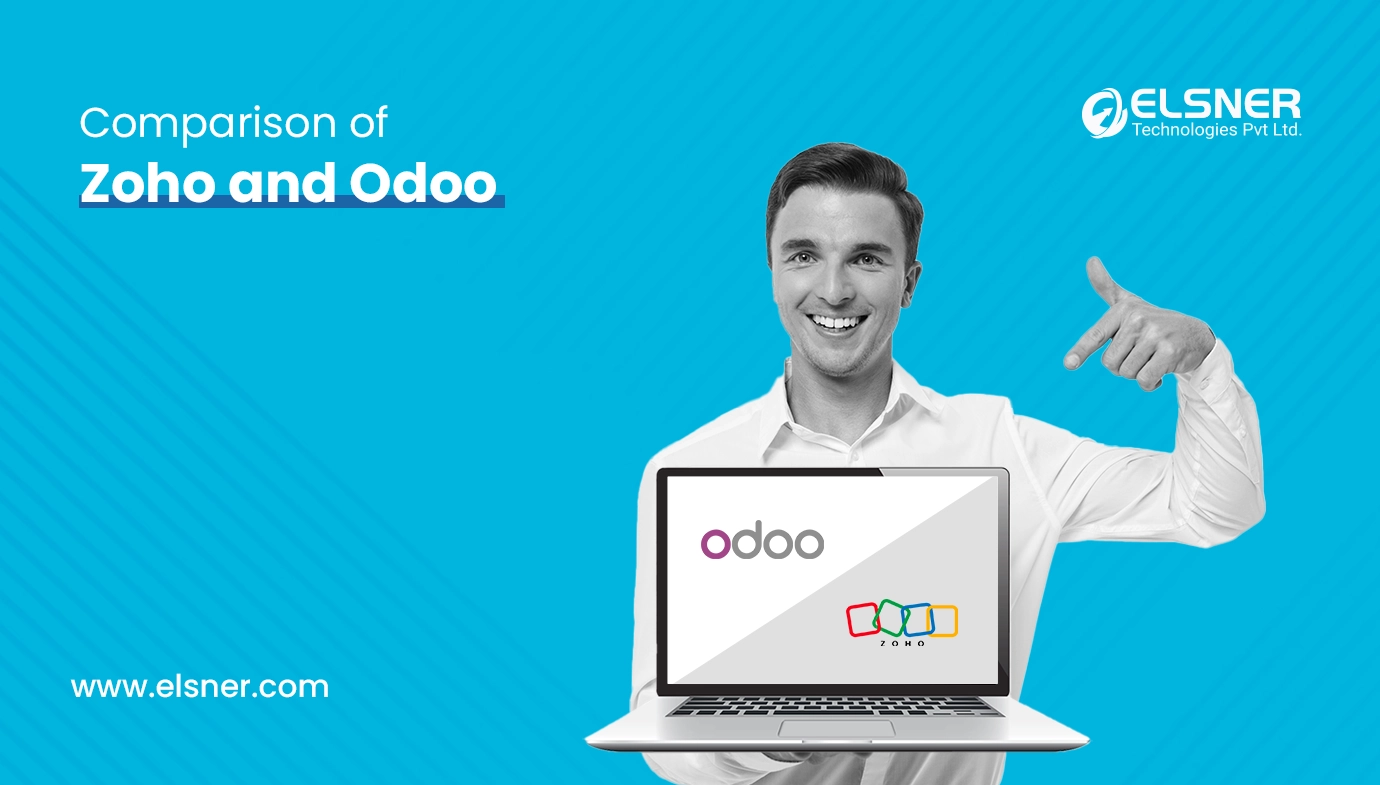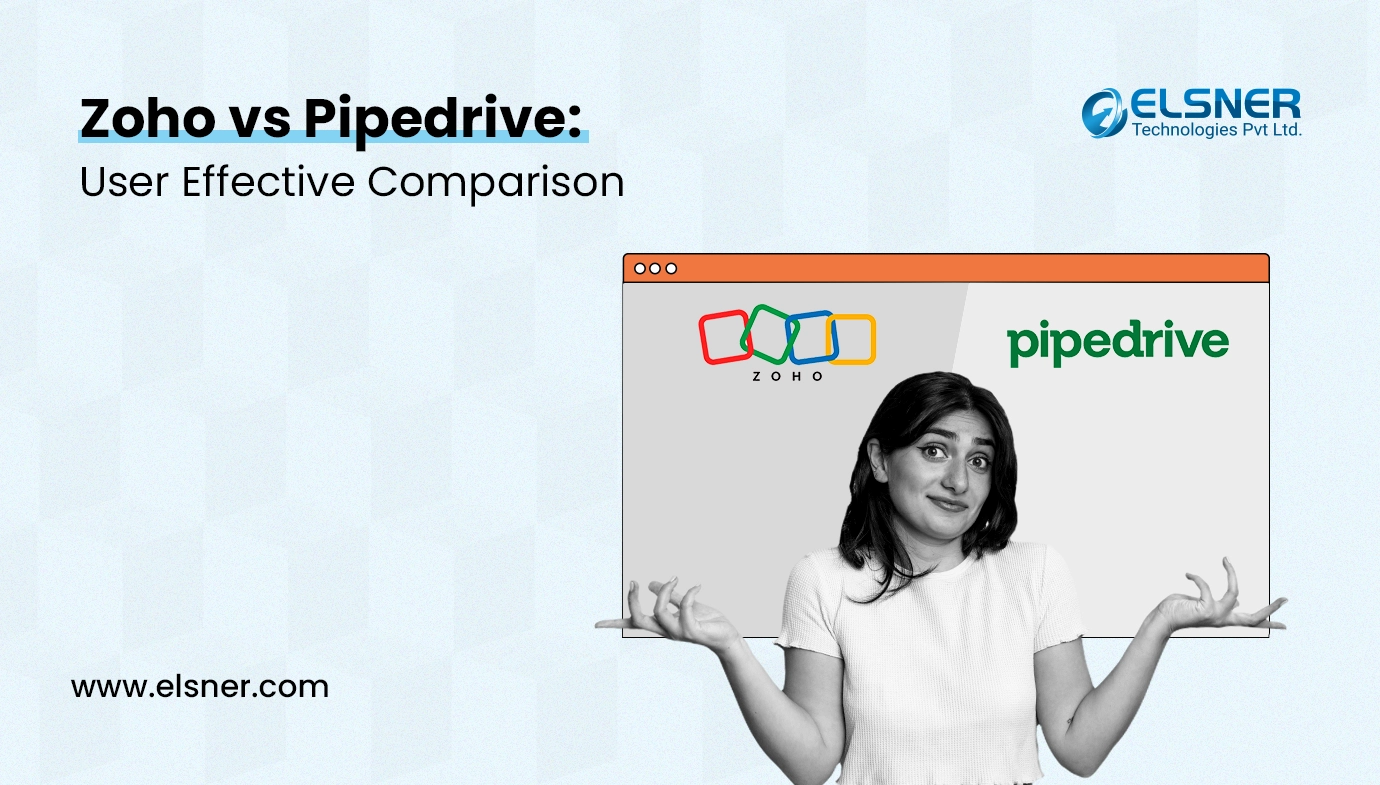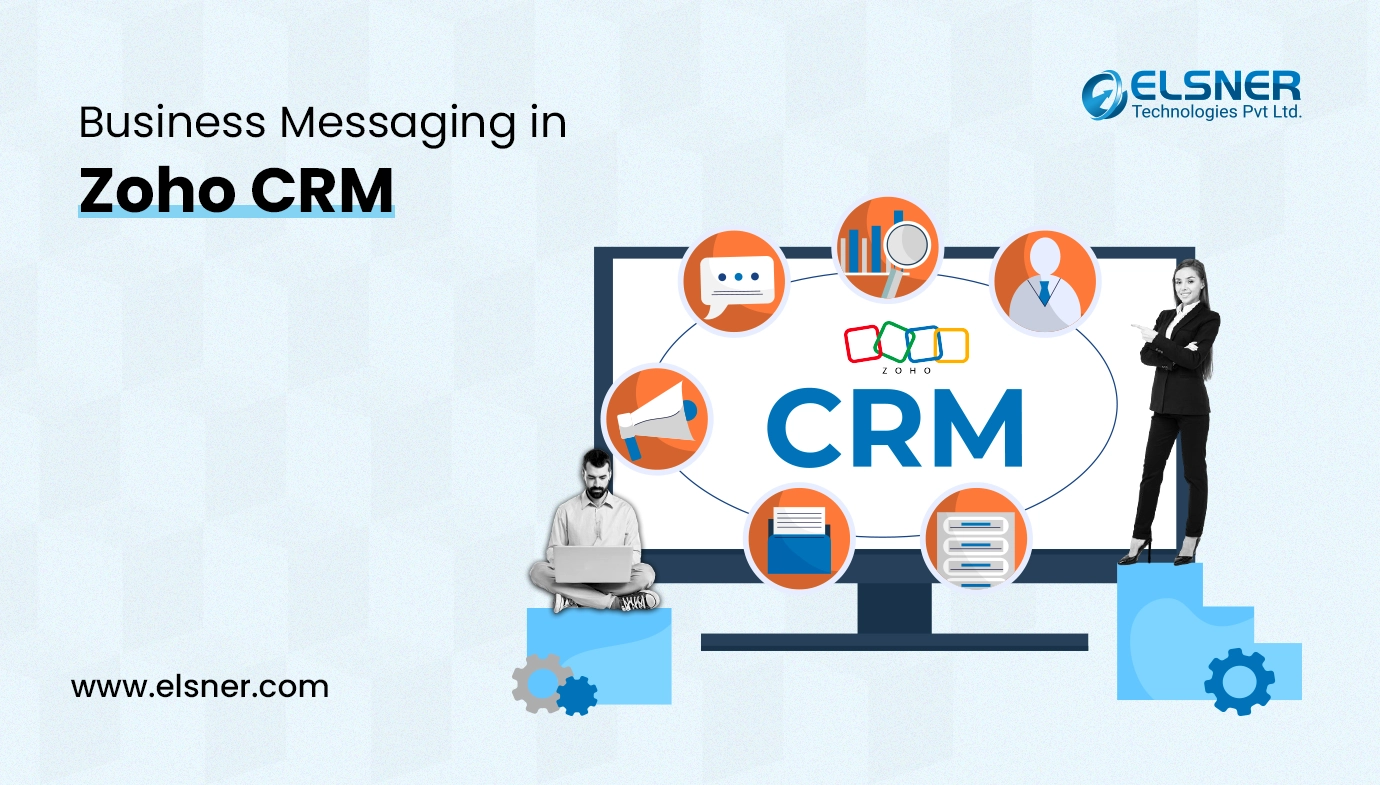- What is a CRM Software?
- How to Choose the Perfect CRM Software?
- 1. Clearly Outline Your Objectives and Goals
- 2. Evaluate the Essential Features that Align with Your Business Needs
- 3. Explore Various Implementation Options Available
- 4. Assess Data Management and Integration Capabilities
- 5. Look for Industry-Specific Functionalities Tailored to Retail
- 6. Consider Scalability to Accommodate Future Growth
- 7. Take Your Budget into Account
- In a Nutshell
Are you finding it challenging to cater to your continuously growing customer base as a retail business owner? Do you want to offer personalized service to your customers? If yes, all that you need is to consider upgrading to a CRM or Customer Relationship Management software. In the present times, maintaining strong relationships with your customers is considered to be highly important for ensuring the success of your retail business.
But, with the availability of multiple options to choose from, it can be difficult to select the right one for your business. Worry not! In this detailed blog post, we will let you know everything you need to know to choose the perfect CRM software for your requirements. So, make sure to read this before you go for Zoho integrations:
What is a CRM Software?
A CRM or Customer Relationship Management software refers to a tool that is designed to assist businesses in managing relationships and interactions with their customers and potential customers. It typically involves the employment of certain technologies for organizing, automating and synchronizing marketing, sales, customer service and technical support processes.
This type of software allows businesses to centralize customer data and track interactions across different channels (like phone calls, email, social media and in-person meetings). Not only that, but it helps in analyzing customer interactions and data, which, in turn, facilitates boosting relationships and sales efforts. However, having a good CRM platform is not considered to be enough. In this regard, you should ensure your software is well-implemented to get the most out of it. Due to this reason, it is a good idea to choose Zoho CRM integrations.
How to Choose the Perfect CRM Software?
There are certain factors that you should take note of while choosing the ideal CRM solution for your retail business. Let’s discuss those in detail in the following section:
1. Clearly Outline Your Objectives and Goals

The first and most important step for choosing the perfect CRM software involves assessing your goals. You must be clear on what you want to accomplish with a new CRM system. It will help in effectively guiding your software selection procedure. Some of the important goals that you should consider in this aspect include enhanced sales effectiveness, improved customer relationships and streamlining operational processes.
With a powerful CRM system, you can help your business to better comprehend the unique requirements of your customers, their behaviors and preferences. Thus, it enables tailored communications and targeted offers for nurturing customer loyalty. It also helps in driving repeat business. Moreover, it equips your sales teams with valuable insights like past interactions and buying history, facilitating Effective Zoho CRM Techniques to lead management and customer engagement. CRM software again helps streamline operations by automating repetitive tasks, centralizing customer data and breaking down silos between departments. Thus, it improves collaboration and efficiency across your organization.
2. Evaluate the Essential Features that Align with Your Business Needs

While picking CRM software for your retail business, you should prioritize features that align with your unique business requirements. In this regard, you should focus on powerful contact management tools that aid in tracking interactions and fostering relationships. Certain features to look for are segmentation tools, customer profiles and comprehensive logging capabilities for emails, calls, meetings and other touchpoints.
Additionally, emphasizing sales automation functionalities such as sales pipeline management, lead scoring, and tailored proposal templates are also important. All of these help in effectively boosting the productivity of your sales team. You should ensure smooth integration of Zoho with your sales communication channels for optimal performance. Another important thing involves considering marketing automation tools like automated email marketing, landing pages and lead nurturing features for engaging prospects and efficiently guiding them through your sales funnel.
3. Explore Various Implementation Options Available

Another key thing to focus on while making a selection involves the implementation approach, i.e., on-premise or cloud-based. Cloud-based CRMs hosted on the vendor’s servers and accessed through the internet typically come with lower upfront costs and offer easier setup and automatic updates. On the other hand, on-premise CRM installed on your company’s servers facilitates more customization and data security control. Also, it necessitates in-house IT staff and comes with higher upfront and ongoing costs.
Along with deployment options, it is important to prioritize mobile capabilities, which is important for modern retail’s omnichannel landscape. You should seek CRM solutions with offline access, native mobile apps and mobile-friendly interfaces for empowering sales staff. It allows them to access and update customer data easily. For maximum flexibility, you should ensure compatibility with both tablets and smartphones. Again, to make a well-informed decision between on-premise and cloud CRM solutions, you should essentially consider your IT resources, budgets and sales mobility needs. Thus, it helps in ensuring seamless integration.
4. Assess Data Management and Integration Capabilities

It is vital to look for solutions that come with robust data management and integration abilities. Integration with core retail systems like POS and inventory management plays a key role in ensuring centralized data and streamlined operations. Your main goal should be to look for CRM systems that smoothly sync with inventory systems in real time. Thus, it offers you precise stock levels across channels, which enables sales staff to provide accurate delivery dates and optimize stock for omnichannel fulfillment.
You should make sure that the chosen CRM provides easy data import functionality which facilitates smooth migration of customer and transactional data from existing systems. It is mainly through API or CSV integration. Thus, choosing a CRM that tightly integrates with core retail systems helps ensure complete customer profiles, streamlined processes and a single truth source for retail operations. In this case, opting for Zoho development services is a good idea, as an expert Zoho CRM developer can assist in the integration process.
5. Look for Industry-Specific Functionalities Tailored to Retail

The CRM solution you choose must possess industry-specific functionalities that are customized to the unique requirements of your retail business. You should ensure that the CRM systems smoothly integrate with your loyalty program, thereby enabling effective tracking of customer purchases, reward points and redemption activity. It again promotes personalized promotions and effectively identifies top customers. So, it is a good idea to look for a CRM that streamlines customer segmentation depending on loyalty tiers and facilitates targeted communications for boosting customer engagement.
Additionally, it should support omnichannel sales, thereby allowing visibility into customer interactions across all touchpoints. In this regard, focusing on specific features like unified customer profiles, comprehensive attribution reporting, flexible order management, clienteling tools, etc., will greatly help. Thus, with omnichannel support, you can ensure personalized and consistent service across all customer touchpoints, which helps improve the overall retail experience.
6. Consider Scalability to Accommodate Future Growth

The CRM solution that you end up choosing for your retail business should necessarily be scalable for accommodating future growth. So, you should make sure to look for a CRM system that can easily scale up alongside your business expansion, whether it involves expanding product lines, increasing customer numbers, opening new locations or generating higher sales volumes.
Some of the most important scalability factors to evaluate include the CRM’s capacity for expanding customer databases, accommodating future and current customers without extra fees. Additionally, you should consider the scalability of user capacity, which ensures adequate support for concurrent users and total named users as your team grows. Another important thing involves accessing the CRM platform’s data storage abilities to ensure it can effectively handle rising volumes of sales records, customer data and inventory information. Zoho is a CRM system to choose from as it seamlessly scales with your business.
7. Take Your Budget into Account

While making a choice, you should carefully evaluate both ongoing and upfront costs. Most of the CRM vendors operate on a subscription basis, providing annual or monthly plans that scale with your team’s size. These subscriptions generally vary based on the features included. In this case, the basic plans cover essentials such as contact management and reporting. Whereas the higher-tier plans provide extra functionalities like advanced analytics and sales automation. So, in this regard, it is vital to carefully evaluate the unique requirements of your business to determine which particular features are essential and which are optional. Thus, it helps you to choose a plan that best caters to your budgetary constraints.
Considering implementation costs like Zoho implementation, training, customization and data migration are also important. You should allot a certain budget for ongoing training, which will prove to be helpful as new employees join your team. At the time of assessing your budget, you should not forget to consider integration costs like Zoho CRM Quickbooks integration which is important for ensuring seamless operations and data management.
In a Nutshell
So, in the conclusion part, it can be said that CRM software is a vital tool for retail businesses looking forward to boosting sales, enhancing customer satisfaction and streamlining operations. After reading this guide, we are sure you can make the right choice that best suits your needs and business objectives. By choosing Zoho CRM integrations, you can reap many interesting benefits as a retail business owner.
An expert Zoho CRM developer facilitates centralizing customer data into one easily accessible platform. It contributes to offering retail staff the information that they need to offer personalized service and targeted promotions to customers. Thus, instead of waiting anymore, it is high time to opt for Zoho development services today to help your business reach greater heights.

About Author
Pankaj Sakariya - Delivery Manager
Pankaj is a results-driven professional with a track record of successfully managing high-impact projects. His ability to balance client expectations with operational excellence makes him an invaluable asset. Pankaj is committed to ensuring smooth delivery and exceeding client expectations, with a strong focus on quality and team collaboration.




